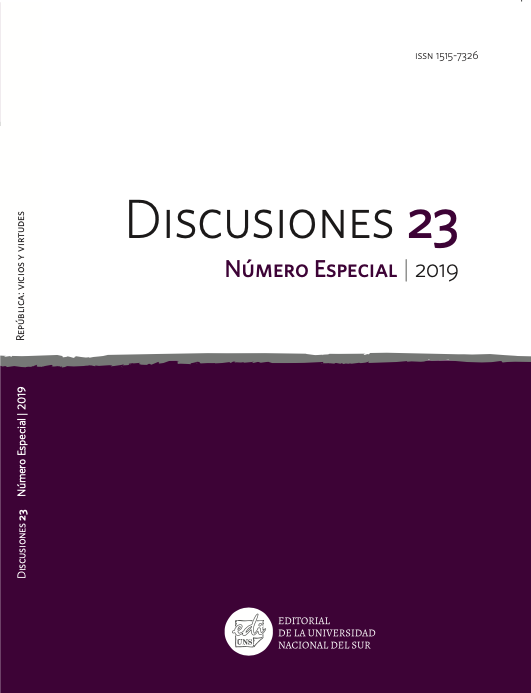Beyond Classic Republicanism. A Critical Commentary On “Public Reasons” by Andrés Rosler
DOI:
https://doi.org/10.52292/j.dsc.2019.2216Keywords:
Classic Republicanism, Neo-Republicanism, Structural dominationAbstract
lthough the republican tradition and its conception of freedom as non-domination have a leading role for a long time, it was overshadowed by the Berliner binomial that exhausted the conceptions of freedom in negative freedom as non-interference and positive freedom as self-control or self-government. Neorepublicanism revives the republican conception of freedom as non-domination and presents it as an alternative that overcomes those approaches. In Razones públicas Andrés Rosler offers an image of classical republicanism. He highlights that in this tradition freedom as non-domination occupies the main role and informs the rest of the ele- ments of the portrait: virtue, debate, law and homeland. However, in his book the image offered plays a normative role for which it is not equipped. In this paper I will show this gap and pointing out a new gap, highlighted by several authors, between neo-republicanism and structural approaches.
Downloads
Published
How to Cite
Issue
Section
License
Discusiones does not withhold rights of reproduction or copyright. Consequently, authors may share the final versions of publications.


